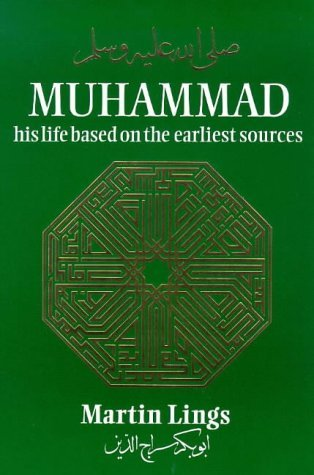 Martin Lings’ Muhammad: His Life Based on the Earliest Sources is an exceptional biography that offers readers a deeply spiritual and meticulously researched account of the life of the Prophet Muhammad. Published in 1983, this book has since become a classic in the field of Islamic studies and is highly regarded by both scholars and general readers for its accessible prose and faithful representation of the earliest Islamic sources.
Martin Lings’ Muhammad: His Life Based on the Earliest Sources is an exceptional biography that offers readers a deeply spiritual and meticulously researched account of the life of the Prophet Muhammad. Published in 1983, this book has since become a classic in the field of Islamic studies and is highly regarded by both scholars and general readers for its accessible prose and faithful representation of the earliest Islamic sources.
Narrative Style and Approach
Lings, a British scholar who converted to Islam, brings a unique blend of academic rigor and personal devotion to his work. The narrative is drawn primarily from classical Islamic sources, including Ibn Ishaq’s Sirat Rasul Allah, which is one of the earliest biographies of the Prophet, as well as other early collections of hadith (sayings and actions of the Prophet). Lings’ writing is elegant and engaging, making the life of the Prophet not just a historical account but a living, spiritual journey.
The author’s respect for his subject is evident throughout the book. Lings presents Muhammad not only as a historical figure but as a man of profound spiritual insight whose life continues to inspire millions. His portrayal is sympathetic without being hagiographic, offering a balanced view that acknowledges the Prophet’s human challenges alongside his spiritual and moral leadership.
Content and Structure
The book is divided into chapters that follow the chronological events of the Prophet’s life, from his birth in Mecca to his passing in Medina. Lings meticulously details significant events such as the revelation of the Quran, the migration (Hijra) to Medina, the battles that defined early Islam, and the establishment of the Muslim community. Each chapter is infused with the context and emotions of the time, bringing to life the challenges and triumphs of the early Muslim community.
Lings is particularly adept at highlighting the profound moments of revelation and the spiritual significance of various events in the Prophet’s life. For example, the author’s description of the Night Journey (Isra and Mi’raj) and the first revelation in the cave of Hira are handled with a reverence and depth that emphasize their importance in Islamic tradition.
Strengths and Limitations
One of the book’s greatest strengths is its reliance on early sources, which lends credibility and authenticity to the narrative. Lings’ careful selection and interpretation of these sources allow readers to gain insight into the world of seventh-century Arabia and the birth of Islam.
However, some readers might find the book’s tone and style to be somewhat traditional, particularly those looking for a more critical or modernist interpretation of Islamic history. The book does not engage with contemporary debates or historical criticism in the way that some other biographies might. Instead, Lings stays true to the reverence and narrative style of the classical Islamic tradition, which may not resonate with everyone but is highly effective for those interested in a faithful and spiritual portrayal.
Muhammad: His Life Based on the Earliest Sources by Martin Lings is a masterful work that stands as a significant contribution to Islamic biography. It is a must-read for anyone interested in the life of the Prophet Muhammad, whether for academic purposes or personal spiritual enrichment. Lings’ combination of scholarly precision and poetic narrative makes this book a timeless piece that captures the essence of Muhammad’s life and the profound impact he had on the world.